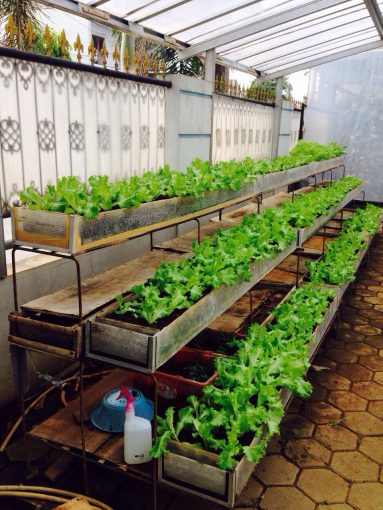
There are many ways to spend the time at home when the Covid-19 pandemic virus takes place, especially for urban residents. One of the activities that can be done is breeding livestock and farming by implementing an integrated urban farming system.
“Integrated urban farming system is the integration of agriculture and livestock in narrow land, especially in urban areas, the results of which can be optimized as household food production,” said the Dean of the Faculty of Animal Science (FAS) UGM, Prof. Dr. Ir. Ali Agus, DAA., DEA., IPU., ASEAN. Eng, on Wednesday (15/4).
In the future, with an increase in population and a reduction in food products, the integrated urban farming system can be a solution to meet household food needs. Agricultural products and livestock can also be sold so that they can be an additional source of household income.
“Planted crops can be vegetables and livestock that are kept can be small animals (quail, rabbits, and fish). In order to save land, plants can be planted vertically using waste plastic containers. Water in fish ponds can be used to water plants with an area of 2 × 2 meters of fish ponds,” Ali said.
Integrated urban farming system can be an environmental, economical and sustainable agricultural technique. In the integrated urban farming system, all waste generated can be utilized. Agricultural waste can be used for animal feed and livestock manure can be processed into compost. Thus, the production costs can be affordable because farmers can utilize crop and livestock byproducts. In addition, the food produced is of higher quality because it is protected from chemical fertilizers. (Nadia)
